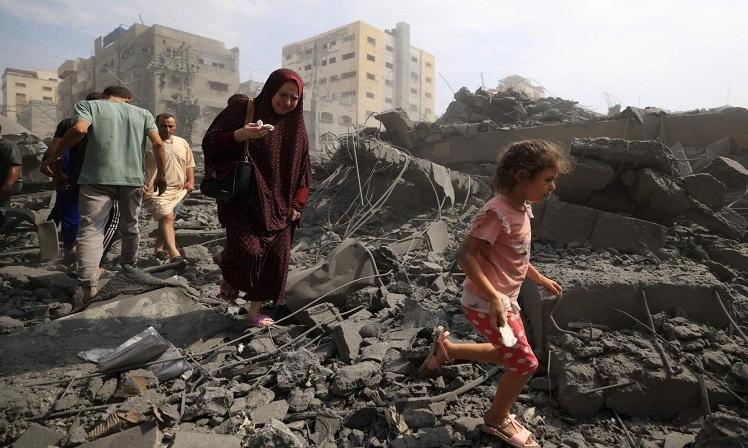
Image Source: Agencies
On the road approaching this village, the bodies of soldiers lie among the shells of burned cars. The walls and doors of previously well-preserved plaster houses are blown up. As bags of slain residents await identification, the smell of death wafts through the hot afternoon air.
This is the scene facing the Israeli military as they struggle to repel a full-scale Hamas offensive launched from the Gaza Strip.
"You see babies, mothers, fathers in their bedrooms and how the terrorists killed," said Major General Itay Veruz, 39, an Israeli army veteran who led the forces that captured the village, on Tuesday. fighters stood in the middle of the wreck. "This is not a battlefield. This is a massacre."
The Israeli army led a group of journalists, including one from The Associated Press, on a tour of the village on Tuesday, a day after they captured it from a group of about 70 Hamas militants.
Surrounded by farms and just minutes from Israel's heavily fortified fence around Gaza, Kfar Aza is one of more than 20 towns and villages attacked by Palestinian militants in the early hours of Saturday. Before the attack, the kibbutz, whose name means "Gaza Village" in English, was a modestly prosperous place with a school, a synagogue and more than 700 residents.
A walk through the rest provides eerie signs of its destruction. At the edge of the city, the gate that once protected the inhabitants was blown up. In the settlement, the militants blew the doors of many homes off their hinges using rocket-propelled grenades. Across the city, walls and burned cars are riddled with bullet holes, tracing a trail of violence that continues into bedrooms with blood-soaked mattresses, safe rooms that failed the attack, and even bathrooms.
A framed quote from a popular TV theme song in one of the partially destroyed homes hinted at what Kfar Aza meant to its residents: "I'm there for you because you're there for me," it said. "We are friends in this house."
Outside, unexploded hand grenades were scattered on the ground. Minutes away, a Hamas flag lay crumpled in the dirt near a glider used by militants for airstrikes.
When journalists were dispatched to the town on Tuesday, rescuers had already removed the bodies of most of the villagers killed in the attack. But reporters saw crews carry several more bags of bodies to a truck and then to a lot outside the Kfar Aza synagogue, where workers were putting up name tags.
An AP reporter saw the bodies of about 20 fighters, many of them badly swollen and disfigured. Hundreds of Israeli soldiers in helmets and body armor patrolled the city on Tuesday as explosions and gunfire rang out in the distance. Veruz, who was retired from the army for eight years before being recalled on Saturday, said the scene was unlike anything he had ever seen, even in a country where violent clashes with Hamas and other militant groups are common. Army spokesman Major Doron Spielman agreed, comparing the deaths in Kfar Aza and nearby villages he visited to scenes he saw as a New York resident after the September 11, 2001, terrorist attacks.
"I remember going through 9/11 and waking up the next day, the next week, and everything changed," he said. "It's the same thing again. But worse because we're such a small country."
Leave a comment: (Your email will not be published)